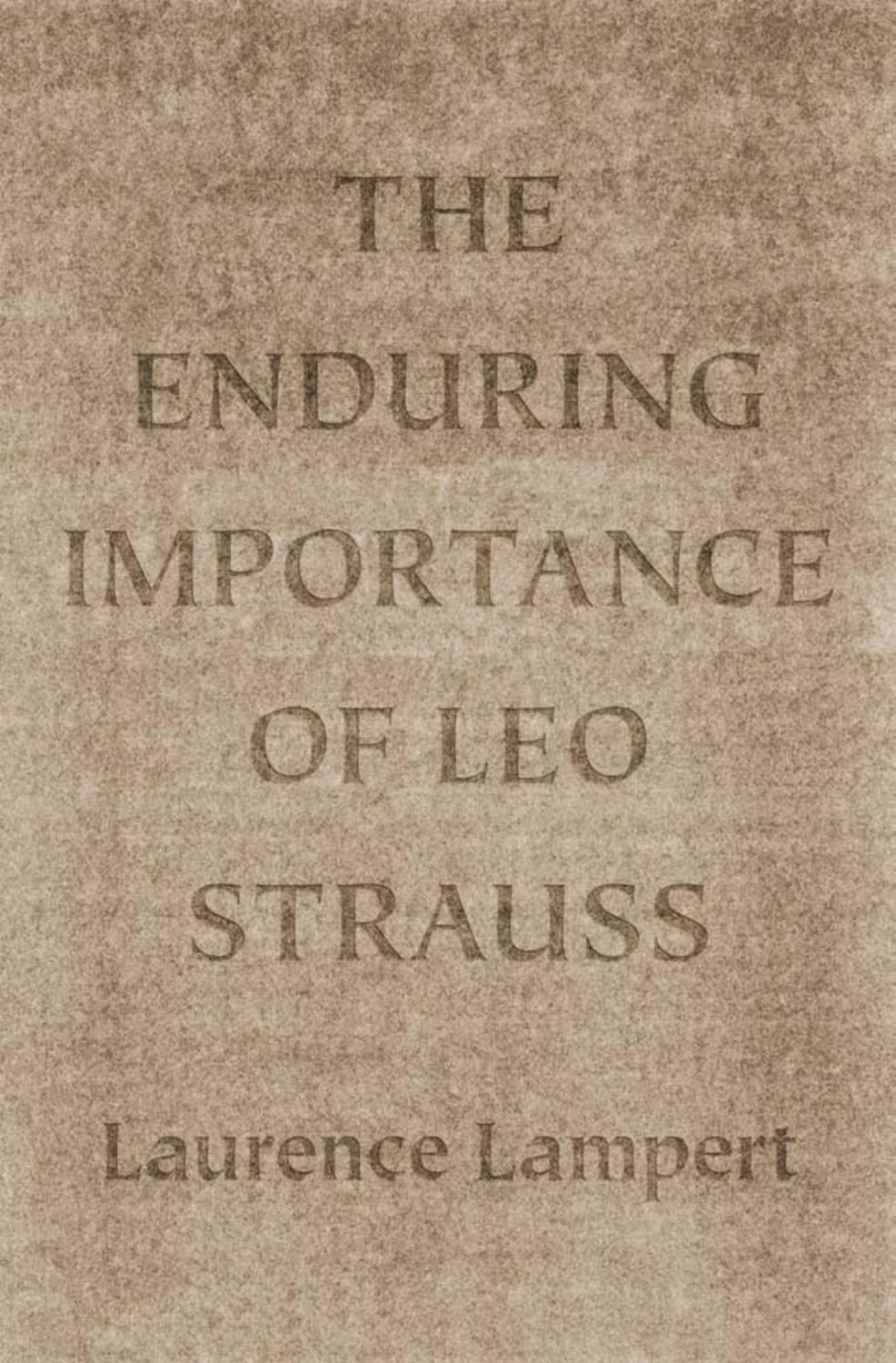The Enduring Importance of Leo Strauss by Laurence Lampert

Author:Laurence Lampert [Lampert, Laurence]
Language: eng
Format: epub, pdf
Publisher: The University Of Chicago Press
Published: 2013-11-17T05:00:00+00:00
CHAPTER EIGHT
Attacking the Enlightenment on Behalf of Socrates: “What Is Political Philosophy?”
ADVANCING ATHENS IN JERUSALEM
“What Is Political Philosophy?” was first presented as three lectures in Jerusalem in December 1954–January 1955. Strauss published them in 1959 as the lead essay of a book assigned the same title, thereby making this essay very prominent among his writings. Having given his lectures a Socratic “What is . . . ?” title, Strauss uses his first sentence to call attention to his speaking in Jerusalem: “It is a great honor, and at the same time a challenge to accept a task of particular difficulty, to be asked to speak about political philosophy in Jerusalem.” His second sentence gives an initial answer to the question of his title and links it with Jerusalem: “In this city . . . the theme of political philosophy—‘the city of righteousness, the faithful city’—has been taken more seriously than anywhere else on earth.” His praise of Jerusalem seems superlatively affirmative: “Nowhere else has the longing for justice and the just city filled the purest hearts and the loftiest souls with such zeal as on this sacred soil.” Yet such praise leaves unspoken what Strauss held highest, the love of truth pursued in that other city, Athens, named in his second paragraph, the city in which “political philosophy came to light,”1 the city, one could say, in which philosophy “as quest for wisdom . . . for universal knowledge, for knowledge of the whole” (4) was taken more seriously than anywhere else on earth. The quest for wisdom, also grounded in passion, fills not the heart but the mind, directing it not to zeal but to a discovery of the limits of knowledge, a discovery of “[t]he distinctive trait of the philosopher . . . that ‘he knows that he knows nothing’” (5), knowledge that puts limits on zeal. By having Jerusalem represent the passion for justice and Athens the passion for knowledge, Strauss alludes to his true challenge in speaking in Jerusalem.
Strauss’s challenge reverses an awesome precedent. Strauss, a Jew who has become a man of Athens, speaks in Jerusalem on what he regards as the greatest discovery of Athens; the precedent is the Apostle Paul speaking in Athens of Jerusalem, bringing news of the true God to those who raised monuments to “the unknown God.”2 Francis Bacon reversed that mighty example of Paul’s entry into Athens to suggest his own project of entering Jerusalem with a view to capturing it for philosophy as Paul captured Athens for Jerusalem; the Christian Bacon can even cite Paul’s example while keeping his own anti-Christian aim esoterically hidden.3 Strauss’s aim of praising Athens in Jerusalem is less revolutionary than Bacon’s aim, but he must, no less than Bacon, make his genuine point esoterically because Strauss, praising Jerusalem in Jerusalem, elevates Athens at Jerusalem’s expense.4
Strauss tells his Jerusalem audience that he knows he is unable to convey even “a weak imitation of our prophets’ vision,” and he warns that he will “even be
Download
The Enduring Importance of Leo Strauss by Laurence Lampert.pdf
This site does not store any files on its server. We only index and link to content provided by other sites. Please contact the content providers to delete copyright contents if any and email us, we'll remove relevant links or contents immediately.
| Anthropology | Archaeology |
| Philosophy | Politics & Government |
| Social Sciences | Sociology |
| Women's Studies |
The remains of the day by Kazuo Ishiguro(8938)
Tools of Titans by Timothy Ferriss(8340)
Giovanni's Room by James Baldwin(7291)
The Black Swan by Nassim Nicholas Taleb(7082)
Inner Engineering: A Yogi's Guide to Joy by Sadhguru(6771)
The Way of Zen by Alan W. Watts(6569)
Asking the Right Questions: A Guide to Critical Thinking by M. Neil Browne & Stuart M. Keeley(5729)
The Power of Now: A Guide to Spiritual Enlightenment by Eckhart Tolle(5711)
The Six Wives Of Henry VIII (WOMEN IN HISTORY) by Fraser Antonia(5481)
Astrophysics for People in a Hurry by Neil DeGrasse Tyson(5166)
Housekeeping by Marilynne Robinson(4416)
12 Rules for Life by Jordan B. Peterson(4287)
Double Down (Diary of a Wimpy Kid Book 11) by Jeff Kinney(4251)
The Ethical Slut by Janet W. Hardy(4232)
Skin in the Game by Nassim Nicholas Taleb(4221)
Ikigai by Héctor García & Francesc Miralles(4204)
The Art of Happiness by The Dalai Lama(4111)
Skin in the Game: Hidden Asymmetries in Daily Life by Nassim Nicholas Taleb(3972)
Walking by Henry David Thoreau(3935)
